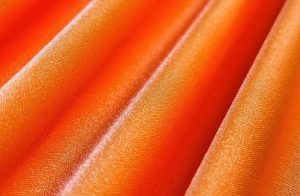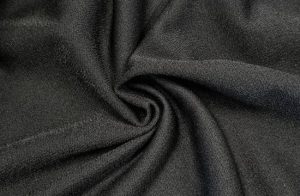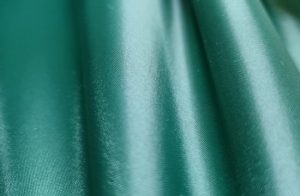What is Spandex Fabric?
6th June, 2023
With its distinct characteristics and adaptability, spandex fabric has revolutionised the garment business.
Spandex fabric is vital for comfort, fit, and performance in anything from athletic clothing to undergarments.
In this blog post, we will explore the world of spandex fabric in more detail and learn why it has become a mainstay in our daily life.
What is Spandex Fabric?
Spandex fabric is a synthetic polymer that belongs to the polyurethane group and it is composed of long-chain polymers known as segmented block copolymers.
The most common spandex fiber contains a minimum of 85% polyurethane and 15% other substances, such as nylon or polyester.
Spandex fabric, also referred to as elastane, is a remarkable synthetic textile material that has taken the fashion world by storm.
It is renowned for its unmatched elasticity and flexibility, which seamlessly adjust to the wearer’s body to provide a comfortable fit unlike any other.
Benefits of Spandex
Elasticity
The amazing stretchability of spandex is one of its most striking characteristics.
It can be stretched up to 500% of the way from its starting point and rapidly snap back into place.
This is possible due to its special quality, spandex-made clothing fits snugly and comfortably while still allowing for movement.
Comfort
Spandex offers exceptional comfort due to its soft texture and ability to adapt to the body, offering a slim shape without sacrificing movement.
The fabric’s elasticity ensures that it hugs the body without feeling restrictive, making it ideal for activewear.
Durability
It may sound counterintuitive but despite its stretchability, spandex fabric is actually highly durable and resilient.
Spandex can be stretched and recovered from several times without losing its form or integrity.
This toughness helps spandex-made clothing last a long time by guaranteeing that its fit and look are retained.
Breathability
Although spandex is not naturally breathable, it may be made more breathable by blending it with other natural or synthetic fibres.
In order to increase airflow and decrease heat retention while also improving the general comfort of the garment, manufacturers frequently mix spandex with fabrics like cotton or polyester.
Where is Spandex Fabric Used?
Apparel Industry
Spandex has revolutionized the fashion industry by enabling the creation of form-fitting and body-conscious garments.
The fabric’s stretchability enhances the fit, comfort, and style of these clothing items, making it an extensively used fabric in the production of stretch jeans, leggings, dresses, skirts, and tops.
Sportswear
The sports and activewear industry heavily relies on spandex fabric!
Its stretch and recovery properties make it ideal for producing athletic leggings, sports bras, compression sleeves, and other performance-enhancing garments.
Spandex fabric enables freedom of movement and provides support during physical activities.
Undergarments & Swimwear
Its ability to conform to body contours and provide a snug fit makes it a popular choice for undergarments and swimwear.
It is commonly used in the production of bras, panties, shapewear, and swimsuits due its stretch, ensuring comfort and a flattering silhouette.
Medical
Spandex’s compressive nature makes it suitable for medical and compression garments.
It is often used in the manufacturing of compression stockings, sleeves, and orthopedic braces.
These garments help improve blood circulation, provide support, and aid in the recovery process.
Advantages and Disadvantages of Spandex Fabric
Advantages
Elasticity: Spandex fabric offers unmatched stretchability, allowing for a comfortable and flexible fit.
Comfort: Its ability to conform to the body contours provides a comfortable wearing experience.
Durability: Despite its stretch, spandex fabric is highly durable and maintains its shape even after repeated use.
Versatility: Spandex fabric finds application in various industries, including apparel, sportswear, and medical garments.
Disadvantages
Heat: Spandex fabric is sensitive to heat and may shrink or lose elasticity if exposed to high temperatures during washing or drying.
Limited Breathability: Pure spandex fabric may have limited breathability, which can lead to discomfort in hot and humid conditions.
Potential Allergies: Some individuals may develop skin allergies or sensitivities to spandex fabric, although such cases are rare.
Care Requirements: Spandex fabric requires special care, including gentle washing and avoiding the use of harsh chemicals or fabric softeners, to maintain its elasticity and longevity.
Environmental Impact: The production of spandex fabric involves synthetic materials, which can have an environmental impact due to their non-biodegradable nature.
Care of Spandex Fabric
- Washing: Always follow the care instructions on the label.
Generally, it is recommended to hand wash or machine wash spandex fabric in cold water using a gentle cycle.
Avoid using bleach or fabric softeners, as they can damage the fabric’s elasticity.
- Drying: Air drying is the best method for drying spandex.
Avoid tumble drying on high heat, as it can cause shrinkage and damage the fabric.
If using a dryer, select a low heat or delicate setting.
- Ironing: Spandex is prone to heat damage, so it is advisable to avoid ironing.
If necessary, use a low heat setting or place a cloth between the fabric and the iron to prevent direct contact.
- Storage: Store it in a cool, dry place away from direct sunlight.
Avoid hanging them on sharp hooks or hangers that can stretch or deform the fabric.
Is Spandex Fabric the Same as Lycra?
Spandex and Lycra are often used interchangeably, but it’s essential to understand their relationship.
Spandex is a generic term for a type of synthetic fiber known for its exceptional stretch and elasticity.
On the other hand, Lycra is a specific brand of spandex fibers produced by The LYCRA Company where produce authentic LYCRA® brand spandex fibers.
A way to think to about it is, while all Lycra fibers are spandex, not all spandex fibers are Lycra.
Does Spandex Shrink?
Spandex itself shrinks very little over time due to its synthetic makeup and elastic characteristics.
An important aspect to take into account is the inclusion of additional fibres in a spandex mix or the design of the fabric may have an impact on the fabric’s total shrinkage.
Conclusion
In the textile sector, spandex is a game-changer because it provides unmatched elasticity, comfort, and adaptability.
It delivers a great fit and remarkable flexibility for everything from apparel to upholstery.
So, whether you’re donning activewear for a workout session, enjoying the comfort of spandex-infused undergarments, or marveling at the stretchable upholstery on your furniture, spandex never fails to amaze with its remarkable properties.
Visit us at UK Fabrics Online to check our Spandex range!
If you have any questions, email us or leave a comment here.
Hope you enjoy this one.
Thank you!




Leave a Reply